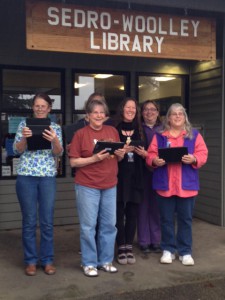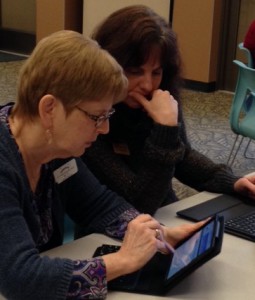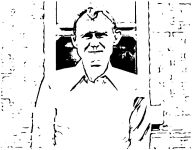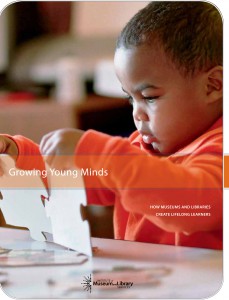From the desk of Sean Lanksbury. PNW & Special Collections Librarian
Signed in 1961 and ratified in 1964, The Columbia River Treaty (CRT) is an international agreement between Canada and the United States that coordinates flood control and optimizes hydroelectric energy production on both sides of the border. The United States and Canada are set to renegotiate this important treaty in 2014. Any decisions regarding the treaty will have profound impacts for citizens of the United States, Canada, Pacific Northwest Tribal Members and Canadian First Peoples. Not only does the treaty guide how the nations operate hydroelectric resources and compensate the partner nation in doing so, but also how the two nations provide flood control, establish fishing rights, and address numerous environmental issues. If either nation decided to terminate the treaty next year, the termination would take full effect ten years later, in 2024.
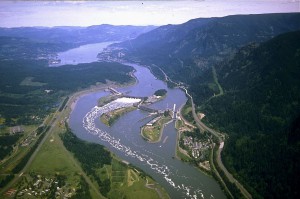
Interested in learning more about the Columbia River Treaty? The State Library’s “Ask-A-Librarian” service is an ideal place to begin your research. Perhaps you are curious about other Washington State issues – the Public Services Staff is at your service.
Contact the Ask-A-Librarian Service and our Public Services Team by visiting online at http://www.sos.wa.gov/library/ask.aspx, by emailing at [email protected], or by calling direct: 360-704-5221.
The State Library’s associates at HistoryLink.org, the free online encyclopedia of Washington State history, have authored some new essays on the Columbia River Treaty accessible at http://www.HistoryLink.org. The State Library has very useful materials from across the last 5 decades that can help provide understanding and context for different aspects and sentiments on this essential piece of international lawmaking. See below for a few suggestions. For more details, just follow the links to the State Library Online Catalog:
STATE LIBRARY RESOURCES
Canada-United States Treaty Relations. Edited by David R. Deenes. (Durham, N.C.: Published for the Duke University Commonwealth-Studies Center by Duke University Press, 1963. 250 pp.
Bibliographic notes, index.
Work on the 1961 Columbia Basin Treaty between Canada and the United States.
http://cals.evergreen.edu/search~S19/o423717
Discussion of coordinated operation of electric utility systems in the Pacific Northwest in conjunction with Canadian storage; presentation before the U.S. Treaty Negotiating Team, Washington, D.C., January 13, 1961. (Washington, D.C., 1961. 48 leaves. Maps (part fold.) diagrams, tables.
Presentation made by a working group representing interested non-Federal generating utilities regarding a treaty relating to cooperative development of the water resources of the Columbia River basin.
http://cals.evergreen.edu/search~S19/o18936067
Conflict over the Columbia: The Canadian Background to an Historic Treaty. Neil A. Swainson. (Part of the Canadian Public Administration series. Montreal: The Institute of Public Administration of Canada, McGill-Queen’s University Press, 1979. 476 pp. Illustrations, Bibliographic notes, index.
http://cals.evergreen.edu/search~S19/o5891766
The Columbia River Treaty: The Economics of an International River Basin Development. By John V. Krutilla. (Baltimore, Published for Resources For the Future by Johns Hopkins Press 1967. 211 pp. Illustrations. 24 cm.)
http://cals.evergreen.edu/search~S19/o231824
United States-Canada, Pacific Salmon Treaty: Source Materials. Revised Oct. 1985. (Portland, OR: Columbia River Inter-Tribal Fish Commission, 1985. 1 v. (various pagings). Illustrations.
http://cals.evergreen.edu/search~S19/o44268872
Transboundary River Governance in the Face Of Uncertainty: The Columbia River Treaty: A Project of the Universities Consortium on Columbia River Governance. Edited by Barbara Cosens. (Corvallis, Or.: Oregon State University Press, 2012. 455 pp. ill., maps, bibliographical references and index.)
http://cals.evergreen.edu/search~S19/o791491799
Treaty Rights: Sustaining a Way of Life: The Role of Treaty Tribes and Intertribal Treaty Commissions in the Great Lakes and Pacific Northwest. (Portland, Ore.: Columbia River Inter-Tribal Fish Commission, 2013. 15 pp. Illustrations.
“Recommendations to the Obama Administration and the 113th Congress from the Treaty Tribes of the Great Lakes and Pacific Northwest, including the Columbia River Inter-Tribal Fish Commission and the Northwest Indian Fisheries Commission. February 2013.”
http://cals.evergreen.edu/search~S19/o861977651
The Si’lailo way: Indians, salmon, and law on the Columbia River. Edited by Joseph C. Dupris, Kathleen S. Hill, William H. Rodgers, Jr. (Durham, N.C.: Carolina Academic Press, 2006. 425 pp. Illustrations, maps, index.)
http://cals.evergreen.edu/search~S19/o60454899
View table of contents online: http://catdir.loc.gov/catdir/toc/ecip0513/2005013437.html
Taming the Columbia River: the challenge of United States-Canadian cooperation. By Sabra Holbrook. (New York: Coward-McCann, 1967. 121 pp. Illustrations, maps,
Written for younger readers, this work examines the background and benefits of the Columbia Treaty and the water power projects operated cooperatively by the United States and Canada. Describes the river and its tributaries, dam construction, the formation of the treaty, and the economic profits enjoyed by both nations.
http://cals.evergreen.edu/search~S19/o954055
Empty Promises, Empty Nets. Produced by Rick Taylor and Dan Kane. (Portland, OR: Distributed by Wild Hare Media, 1994. VHS, 30 minutes, contains one booklet entitled: Che wana tymoo (19 pp. Illustrations)
This video “details the legal decisions confirming the treaty-bound fishing rights of Columbia River Indians.”
http://cals.evergreen.edu/search~S19/o37284829
WSL Manuscripts (Non-Circulating)
MS 0007: Collection of speeches and statements of Governor Albert D. Rosellini, 1963-1965. (0.5 linear foot (1 box); Washington State Library Manuscripts Collection) The material pertains to Washington State governmental matters. Includes the document, “1964 Annex to exchange of notes dated Jan. 22, 1964 between the governments of Canada and the United States regarding the Columbia River Treaty.”
http://cals.evergreen.edu/search~S19/o791491799






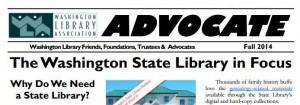
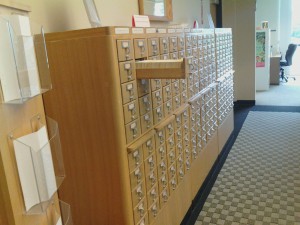
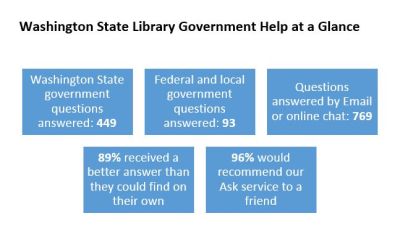
![Mr. Jackson is shown in the Illustrated History of Mason County, by Susan Olsen and Mary Randlette (1978) Additional information on Dick Jackson can be found in the rise and decline of the Olympia oyster, by E. N. Steele [Elma, Wash., Fulco Publications, 1957]](https://blogs.sos.wa.gov/library/wp-content/uploads/2014/03/persevering-the-history-and-culture-3_img_0-229x300.jpg)

